
Understanding Ketosis: A Comprehensive Overview
Unless you’ve been cut off from recent health and fitness trends, you’ve likely encountered the buzz surrounding the Keto Diet. Endorsed by notable health experts, fitness coaches, gym enthusiasts, and diet gurus, it has become one of the hottest dietary regimens. What’s the allure? It pledges quick weight loss by augmenting body fat metabolism. Sounds ideal, doesn’t it? However, many people misinterpret or misunderstand this diet. Despite its complexity and stringent requirements, a booming industry has sprung up to capitalize on the
Keto Diet’s popularity, marketing numerous supplements, often without adequately educating the consumers. This article explores the Keto Diet, ketone supplements, and, specifically, a component known as ‘exogenous ketones.’ We’ll discuss concerns related to this ingredient, demystify the facts, and assess its safety profile.
To begin with, what is the Keto Diet all about? The explanation is a bit intricate, but essentially it’s a dietary regimen that uses severe carb reduction to compel your body to burn fat for energy, with the objective of shedding body fat faster than conventional calorie restriction diets. When the body is deprived of carbs, it metabolizes fat cells into ‘ketones’ for energy. This metabolic state is known as ‘ketosis.’ Simple enough, right?
Well, not exactly. Ketosis is an extreme metabolic state that often results in feelings of fatigue, reduced stamina, anxiety, and mood swings due to the harsh dietary limitations. To help mitigate these issues and ease the transition into ketosis, some manufacturers have introduced keto ‘supplements’ containing exogenous ketones – ketones synthesized outside the body. However, the safety of these exogenous ketones has been questioned.
Firstly, how do we define ‘safe’ in the context of food and supplements? At the most basic level, something is ‘safe’ if it doesn’t harm you by causing pain, discomfort, or temporary/permanent injury. Some ingredients might provoke short-term reactions like swelling, inflammation, or digestive issues, yet these are often classified as ‘safe’ due to their fleeting effects and potential long-term benefits. While many supplements are safe, others like bitter orange extract and yohimbe are not, as they can trigger severe conditions like heart attacks, high blood pressure, and liver damage. This indicates that being ‘natural’ doesn’t inherently imply safety, and being ‘synthetic’ doesn’t necessarily denote risk.
Exogenous ketones are produced synthetically in labs and are not naturally occurring. However, that doesn’t mean our bodies cannot utilize them effectively. A common example found in many keto supplements is beta-hydroxybutyrate, or BHB. This exogenous ketone is synthesized by supplement manufacturers and packaged into capsules, but here’s a lesser-known fact – it’s identical to the ketone your body produces. Indeed, the BHB created in labs is the same as the ketone synthesized in our bodies. If the synthetic and naturally occurring substances are indistinguishable and present in comparable concentrations, there’s little reason to worry about any potential harm. Therefore, BHB can be considered safe.
Furthermore, exogenous ketones have been subjected to clinical trials. At least two studies we found reported no toxic, painful, or even uncomfortable side effects attributable to BHB. This suggests BHB is safe; otherwise, there would be explicit side effects tied to its consumption during clinical trials.
However, it’s crucial to understand that while BHB is safe, it’s not a magical solution for weight loss. If you encounter extravagant claims promising instant weight loss, approach with caution. BHB is intended to acclimatize your body to using ketones for energy and provide the necessary boost during ketosis, not to cause weight loss independently. Based on all existing data, it’s indeed safe for consumption. So, as you proceed on your health journey and come across a ketone supplement labeled with ‘exogenous ketones,’ there’s no cause for concern. There’s no substantiated evidence to suggest it poses any health risk.”
Senior Editor:

“84% of keto supplements selected for testing did not pass the quality test! Our team have compiled a list of what we have found to be the top five products in this category on the market today.”
Our Main Sources:



2023's Top Keto Supps
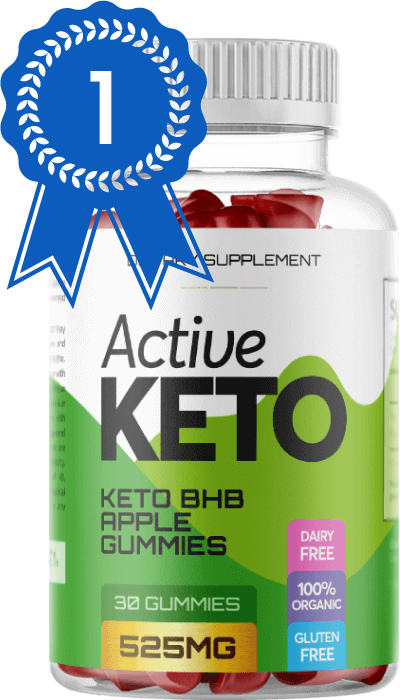
Active KETO
Customer Rating:

Expert Rating:
4.9/5.0

Natural Ingredients

No Side Effects

Good Price
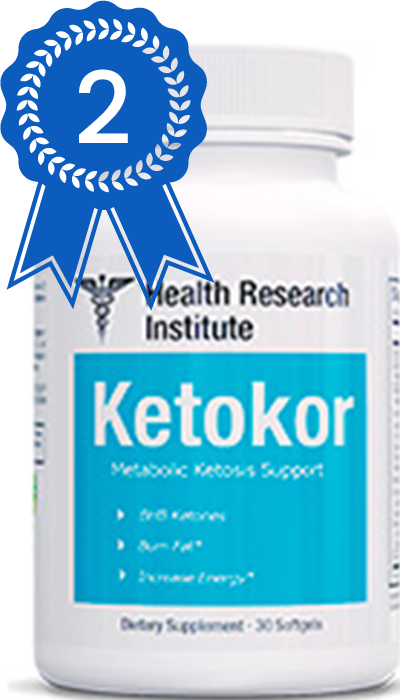
Ketokor
Customer Rating:

Expert Rating:
4.9/5.0

Natural Ingredients

No Side Effects

Good Price
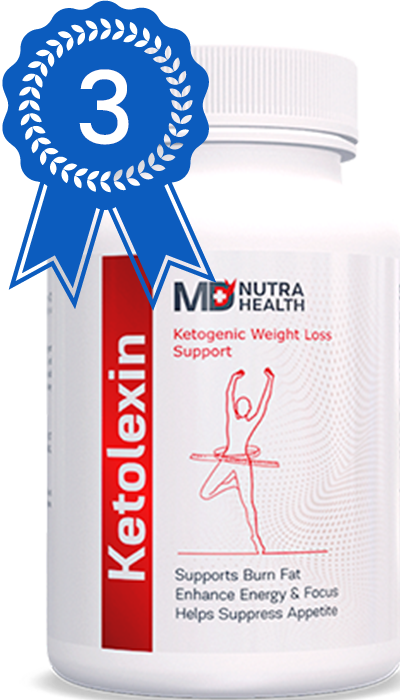
Ketolexin
Customer Rating:

Expert Rating:
4.9/5.0

Natural Ingredients

No Side Effects

Good Price
Editor's Choice:
#1 Active KETO – 4.9/5.0
#2 Ketokor – 4.9/5.0
#3 Ketolexin – 4.9/5.0
#4 Active KETO – 4.9/5.0
#5 Active KETO – 4.9/5.0

Understanding Ketosis: A Comprehensive Overview
Unless you’ve been cut off from recent health and fitness trends, you’ve likely encountered the buzz surrounding the Keto Diet. Endorsed by notable health experts, fitness coaches, gym enthusiasts, and diet gurus, it has become one of the hottest dietary regimens. What’s the allure? It pledges quick weight loss by augmenting body fat metabolism. Sounds ideal, doesn’t it? However, many people misinterpret or misunderstand this diet. Despite its complexity and stringent requirements, a booming industry has sprung up to capitalize on the
Keto Diet’s popularity, marketing numerous supplements, often without adequately educating the consumers. This article explores the Keto Diet, ketone supplements, and, specifically, a component known as ‘exogenous ketones.’ We’ll discuss concerns related to this ingredient, demystify the facts, and assess its safety profile.
To begin with, what is the Keto Diet all about? The explanation is a bit intricate, but essentially it’s a dietary regimen that uses severe carb reduction to compel your body to burn fat for energy, with the objective of shedding body fat faster than conventional calorie restriction diets. When the body is deprived of carbs, it metabolizes fat cells into ‘ketones’ for energy. This metabolic state is known as ‘ketosis.’ Simple enough, right?
Well, not exactly. Ketosis is an extreme metabolic state that often results in feelings of fatigue, reduced stamina, anxiety, and mood swings due to the harsh dietary limitations. To help mitigate these issues and ease the transition into ketosis, some manufacturers have introduced keto ‘supplements’ containing exogenous ketones – ketones synthesized outside the body. However, the safety of these exogenous ketones has been questioned.
Firstly, how do we define ‘safe’ in the context of food and supplements? At the most basic level, something is ‘safe’ if it doesn’t harm you by causing pain, discomfort, or temporary/permanent injury. Some ingredients might provoke short-term reactions like swelling, inflammation, or digestive issues, yet these are often classified as ‘safe’ due to their fleeting effects and potential long-term benefits. While many supplements are safe, others like bitter orange extract and yohimbe are not, as they can trigger severe conditions like heart attacks, high blood pressure, and liver damage. This indicates that being ‘natural’ doesn’t inherently imply safety, and being ‘synthetic’ doesn’t necessarily denote risk.
Exogenous ketones are produced synthetically in labs and are not naturally occurring. However, that doesn’t mean our bodies cannot utilize them effectively. A common example found in many keto supplements is beta-hydroxybutyrate, or BHB. This exogenous ketone is synthesized by supplement manufacturers and packaged into capsules, but here’s a lesser-known fact – it’s identical to the ketone your body produces. Indeed, the BHB created in labs is the same as the ketone synthesized in our bodies. If the synthetic and naturally occurring substances are indistinguishable and present in comparable concentrations, there’s little reason to worry about any potential harm. Therefore, BHB can be considered safe.
Furthermore, exogenous ketones have been subjected to clinical trials. At least two studies we found reported no toxic, painful, or even uncomfortable side effects attributable to BHB. This suggests BHB is safe; otherwise, there would be explicit side effects tied to its consumption during clinical trials.
However, it’s crucial to understand that while BHB is safe, it’s not a magical solution for weight loss. If you encounter extravagant claims promising instant weight loss, approach with caution. BHB is intended to acclimatize your body to using ketones for energy and provide the necessary boost during ketosis, not to cause weight loss independently. Based on all existing data, it’s indeed safe for consumption. So, as you proceed on your health journey and come across a ketone supplement labeled with ‘exogenous ketones,’ there’s no cause for concern. There’s no substantiated evidence to suggest it poses any health risk.”
Senior Editor:

“84% of keto supplements selected for testing did not pass the quality test! Our team have compiled a list of what we have found to be the top five products in this category on the market today.”
Our Main Sources:



2023's Top Keto Supps
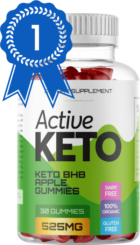
Active KETO
Customer Rating:

Expert Rating:
4.9/5.0
Natural Ingredients
No Side Effects
Good Price
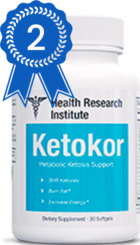
Ketokor
Customer Rating:

Expert Rating:
4.9/5.0
Natural Ingredients
No Side Effects
Good Price
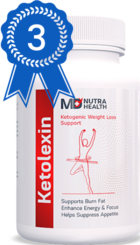
Ketolexin
Customer Rating:

Expert Rating:
4.9/5.0
Natural Ingredients
No Side Effects
Good Price
Editor's Choice:
#1 Active KETO – 4.9/5.0
#2 Ketokor – 4.9/5.0
#3 Ketolexin – 4.9/5.0
#4 Active KETO – 4.9/5.0
#5 Active KETO – 4.9/5.0

HealthSupps LLC. 1309 Coffeen Avenue STE 1200 Sheridan, WY 82801
Terms and Conditions – Privacy Policy – Disclaimer Contact us: support@healthsupps.com
*These statements have not been evaluated by the Food and Drug Administration. These products are not intended to diagnose, treat, cure, or prevent any disease. Individual results may vary. Check with your physician before beginning a supplement program. Legal Disclaimer: The information provided on this site is intended for your general knowledge only and is not a substitute for professional medical advice or treatment for specific medical conditions. Always seek the advice of your physician or other qualified health care provider with any questions you may have regarding a medical condition.

